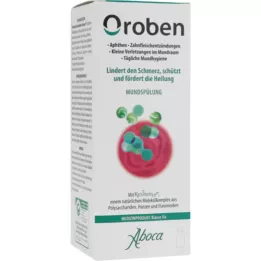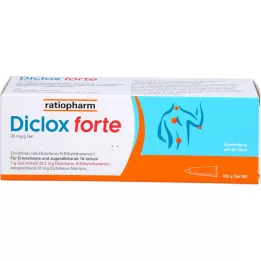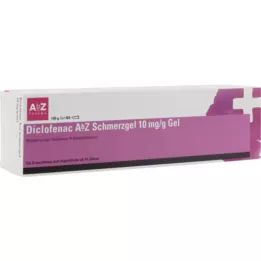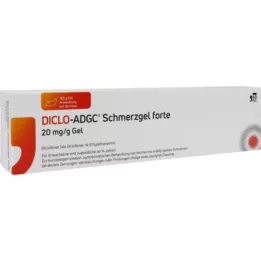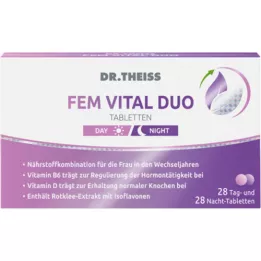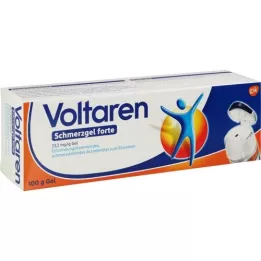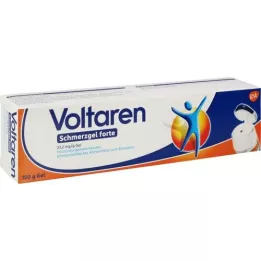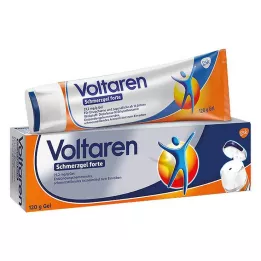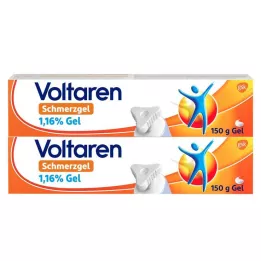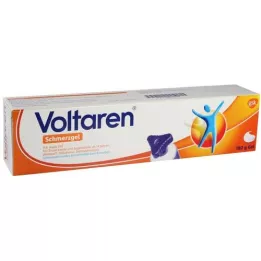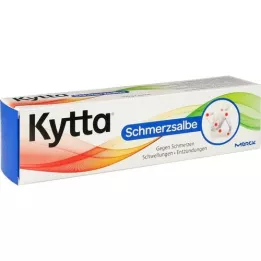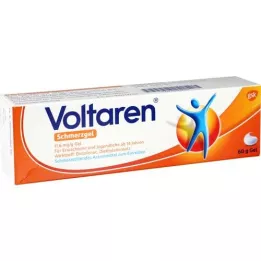DICLOFENAC Zentiva 25 mg film -coated tablets, 20 pcs
DICLOFENAC Zentiva 25 mg Filmtabletten
Manufacturers: Zentiva Pharma GmbH
PZN: 10273638
Dosage: Filmtabletten
Content: 20 St
Reward Points: 64
Availability: In stock
$11.17
$6.02
from German pharmacies to your address
Instructions for use for DICLOFENAC Zentiva 25 mg film -coated tablets, 20 pcs
Diclofenac Zentiva® 25 mg film -coated tablets
Active ingredient: 1 film tablet contains 25 mg diclofenac potassium.
Application areas:
Symptomatic treatment of light to moderately severe pain and fever in adults and adolescents from the age of 16.
Notice:
Without consultation with the doctor in the event of pain, do not apply for more than 4 days or for a fever for more than 3 days. In the event of complaints that last longer or worsen, a doctor should be consulted.
Read the package supplement and ask your doctor or pharmacist for risks and side effects.
Pharmacy. Winthrop Arzneimittel GmbH, 65927 Frankfurt am Main. Co -sales: Zentiva Pharma GmbH, 65927 Frankfurt am Main.
As of: August 2016 (Sade.GDicLZ.16.10.2502)
Detailed instructions for DICLOFENAC Zentiva 25 mg film -coated tablets, 20 pcs
Field of use
- The preparation is a pain relieving and anti-inflammatory drug from the group of non-steroidal inflammatory inhibitors/anti-inflammatory drugs (NSAID).
- It is used for symptomatic treatment of
- slight to moderate pain
- Fever
Active ingredients / ingredients / ingredients
25 mg diclofenac, potassium salt
22.15 mg diclofenac
2.92 mg potassium ion
Crospovidon auxiliary material (+)
Hypromellic auxiliary substance (+)
Potassium hydrogen carbonate auxiliary material (+)
Macrogol 400 auxiliary material (+)
Macrogol 6000 Hedge Terms (+)
Magnesium stair (Ph. EUR.) [pflanzlich] Hedge material (+)
Mannitol Hilfoff (+)
Sodium dodecylsulfate auxiliary substance (+)
Contradictions
- The medicine must not be taken
- if you are allergic to Diclofenac or one of the other components of this drug
- if you have reacted in the past with asthma attacks, nasal mucus swelling or skin reactions after taking acetylsalicylic acid or other NSAIDs
- in the case of unexplained blood formation disorders
- in the event of existing or repeated stomach/duodenum ulcers (peptic ulcers) or bleeding (at least 2 different episodes of proven ulcers or bleeding)
- in the case of gastrointestinal bleeding or breakthrough (perforation) in the history in connection with previous therapy with NSAID
- for brain bleeding (cerebrovascular bleeding) or other active bleeding
- in the case of severe liver or kidney dysfunction
- if you have found heart disease and/or brain vessel disease, e.g. B. if you had a heart attack, a stroke or a small stroke (transitory ischemic attack, TIA) or if you have blocks of the veins to your heart or brain or you had to undergo surgery to remove or circumvent these constipation
- if you have or have problems with your bloodstream (peripheral arterial closure disease)
- in the last third of the pregnancy.
dosage
- Always take this medicine exactly as described here or exactly after the agreement made with your doctor or pharmacist. Ask your doctor or pharmacist if you are not sure.
- Unless otherwise prescribed by the doctor, the recommended dose is:
- Adults and adolescents from the age of 16 take 1 film -coated tablet at the beginning, then 1 film -coated tablet every 4 to 6 hours as required.
- However, the maximum amount of 3 film-coated tablets (corresponding to 75 mg diclofenac potassium) should not be exceeded within 24 hours.
- Duration of the application
- Do not take the medicine without a medical or dental advice for more than 4 days with slight to moderately severe pain or no longer than 3 days with fever. In the event of complaints that last longer or worsen, a doctor should be consulted.
- In general, the lowest effective dose should, that is required to relieve the symptoms, be used over the shortest possible period.
- Please speak to your doctor or pharmacist if you have the impression that the effect is too strong or too weak.
- If you have taken a larger amount than you should
- Central nervous disorders such as headaches, dizziness, dunging and unconsciousness (also myoclonic cramps) as well as abdominal pain, nausea and vomiting can occur as symptoms of overdose. Furthermore, bleeding in the gastrointestinal tract and functional disorders of the liver and kidneys are possible. Furthermore, blood pressure drop, reduced breathing (respiratory depression) and the blue -red color of the skin and mucous membranes (cyanosis) can occur.
- There is no specific antidote (antidot).
- If you suspect an overdose with Diclofenac potassium, please notify your doctor. According to the severity of poisoning, this can decide on the measures necessary.
- If you have forgotten the intake
- Do not take the double amount if you have forgotten the prior intake.
- If you have any further questions about the application of this medicine, please contact your doctor or pharmacist.
Taking
- To take.
- The film -coated tablets are taken with plenty of liquid. In order to achieve the best possible effectiveness, the film -coated tablets should neither be taken to nor immediately after eating.
Patient information
- Warnings and Precautions
- Before you receive diclofenac, inform your doctor,
- if you smoke,
- if you are diabetes (diabetes),
- if you have angina pectoris, blood clots, high blood pressure, increased cholesterol or triglyceride values.
- Security in the gastrointestinal tract
- A simultaneous use of diclofenac potassium with other NSAIDs, including so-called COX-2 inhibitors (cyclooxigenase-2-inhibitors), should be avoided.
- Side effects can be minimized if the lowest effective dose is used over the shortest necessary period.
- Fast -free oral dosage forms of Diclofenac, such as this medicine, can have increased gastric intolerance. Without consultation with the doctor, the maximum duration of use of 4 days with light to moderately severe pain or 3 days with fever may not be exceeded.
- If a long-term therapy with diclofenac is required under medical supervision, the use of a better stomach-compatible DICLOFENAC formulation should be considered.
- Older patients
- In older patients, side effects occur more frequently after using NSAR, in particular bleeding and breakthroughs in the stomach and intestinal area, which may be life-threatening. Therefore, particularly careful medical monitoring is required in older patients.
- Bleeding of the gastrointestinal tract, ulcers and breakthroughs (perforations)
- Bleeding of the gastrointestinal tract, ulcers and perforations, also with a fatal outcome, were reported among all NSAIDs. They occurred with or without prior warning symptoms or serious events in the gastrointestinal tract in the prehistory at any time of therapy.
- The risk of the occurrence of gastrointestinal bleeding, ulcers and breakthroughs is higher with increasing NSAR dose, in patients with ulcers in the history, especially with the complications bleeding or breakthrough, and in older patients.
- These patients should begin treatment with the lowest available dose.
- For these patients as well as for patients who need accompanying therapy with low-dosed acetylsalicylic acid (ASA) or other medicines that can increase the risk of gastrointestinal diseases, a combination therapy with gastric mucosal-protecting medicines should be (e.g. Misoprostol or proton pump inhibitor).
- If you, especially at older agete of side effects on the gastrointestinal tract, you should report any unusual symptoms in the abdomen (especially gastrointestinal bleeding), especially at the beginning of the therapy.
- Caution is advisable if you get medicines that can increase the risk of ulcers or bleeding, such as: B. Oral corticosteroids, anti-blood clotting drugs such as warfarin, selective serotonin reuptake inhibitors that are used, among other things, to treat depressive moods, or thrombocyte aggregation inhibitors such as ASA.
- If you have gastrointestinal bleeding or ulcers under this medicine, the treatment must be discontinued.
- In patients with a gastrointestinal disease in the prehistory (ulcerative colitis, Crohn's disease), caution should be used because their condition can deteriorate.
- Effects on the cardiovascular system
- Medicines like this may be associated with a slightly increased risk of heart attacks ("heart attack") or strokes. Any risk is more likely with high doses and longer treatment. Do not exceed the recommended dose or duration of treatment!
- If you have heart problems or a previous stroke or think that you could have a risk for these diseases (e.g. if you have high blood pressure, diabetes or high cholesterol or smokers), you should discuss your treatment with your doctor or pharmacist.
- Skin reactions
- Under NSAR therapy, serious skin reactions with redness and bladder formation, some with a fatal outcome, were reported (exfediative dermatitis, Stevens-Johnson syndrome and toxic epidermal necrolysis/lyell syndrome. The highest risk of such reactions seems to exist at the beginning of therapy, since these reactions occurred in the majority of cases in the first month of treatment. At the first sign of rashes, mucosal lesions or other signs of a hypersensitivity reaction, the preparation should be stopped and the doctor should be consulted immediately.
- Hepatic effects
- Caution (discussion with the doctor or pharmacist) is offered before the start of treatment of patients with liver dysfunction, since their condition could deteriorate under therapy with diclofenac.
- If the medicine is taken for a longer period of time or repeatedly, regular monitoring of the liver function is appropriate as a precaution. If signs of liver disease are found clinically, the preparation should be discontinued immediately.
- Other information
- The medicine should only be used with the strict weighing of the benefit-risk ratio:
- for certain innate blood formation disorders (e.g. acute intermittent porphyria)
- for certain autoimmune diseases (systemic lupus erythematosus and mixed collagenosis).
- A particularly careful medical monitoring is required:
- directly after larger surgical interventions:
- in allergies (e.g. skin reactions to other medicines, asthma, hay fever), chronic nasal mucosal swelling or chronic, respiratory respiratory diseases narrowing the respiratory tract
- with limited kidney or liver function.
- directly after larger surgical interventions:
- Severe acute hypersensitivity reactions (for example anaphylactic shock) are very rarely observed. At the first sign of a hypersensitivity reaction after taking this medicine, the therapy must be canceled. The symptoms corresponding, medically required measures must be initiated by expert persons.
- Diclofenac can temporarily inhibit the platelet aggregation. Patients with a coagulation disorder should therefore be carefully monitored.
- Like other NSAIDs, Diclofenac can mask the signs and symptoms of an infection. If signs of infection (e.g. reddening, swelling, overheating, pain, fever) occur or worsen during the use of the preparation, the doctor should therefore be consulted immediately.
- As a precaution, if you take medicinal products to inhibit blood clottingit takes blood clotting.
- With a long time of diclofenac potassium, regular control of the kidney function and the blood count is required.
- When taking Diclofenac potassium before surgical interventions, the doctor or dentist must be questioned or informed.
- If painkillers are used for a long time, headaches can occur, which may not be treated by increased doses of the drug. Ask your doctor for advice if you often suffer from headache despite taking the drug!
- In general, the habitual intake of pain relievers, especially when combining several pain relieving active ingredients, can lead to permanent kidney damage with the risk of kidney failure (analgesic nephropathy).
- This medicine belongs to a group of drugs (NSAID) that can affect the fertility of women. This effect is reversible after stopping the drug (reversible).
- The medicine should only be used with the strict weighing of the benefit-risk ratio:
- Before you receive diclofenac, inform your doctor,
- Children and adolescents
- An application of Diclofenac, the active ingredient of this drug, in children and adolescents under the age of 16, is not recommended, since there is no sufficient experiences for this.
- Wateriness and ability to use machines:
- Since the use of this drug, in particular in higher doses of central nervous side effects such as tiredness and dizziness, the reaction capacity can be changed in individual cases and the ability to actively participate in road traffic and to operate machines can be impaired.
- This applies even more in combination with alcohol. You can then no longer react quickly and specifically to unexpected and sudden events. Do not drive a car or other vehicles in this case! Do not operate any tools or machines! Do not work without a safe grip!
Pregnancy
- If you are pregnant or breastfeed, or if you suspect that you are pregnant or intend to become pregnant, ask your doctor or pharmacist for advice before using this drug.
- Pregnancy
- If pregnancy is determined during the use of diclofenac potassium, the doctor must be notified. You may only apply the preparation in the first and second thirds of pregnancy after consultation with your doctor. In the last third of pregnancy, Diclofenac potassium must not be used due to an increased risk of complications for mother and child.
- Breastfeeding
- The active ingredient diclofenac and its dismantling products pass into breast milk in small quantities. Since disadvantageous consequences for the infant have not yet become known, breastfeeding will generally not be necessary for short -term use.
- Childhood ability
- Diclofenac can make it difficult for you to get pregnant. You should inform your doctor if you plan to get pregnant or if you have problems getting pregnant.
Hints
Medicines Reviews
Write a review
Related Products
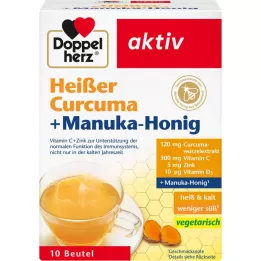
DOPPELHERZ Hot Curcuma+Manuka honey granules, 10 pcs
DOPPELHERZ heißer Curcuma+Manuka-Honig Granulat
$6.02
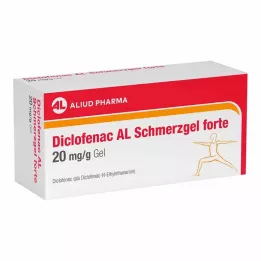
DICLOFENAC AL Pain gel forte 20 mg/g, 100 g
DICLOFENAC AL Schmerzgel forte 20 mg/g 100 g Gel
$7.83 $12.65
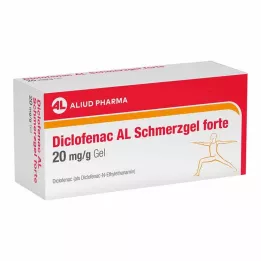
DICLOFENAC AL Pain gel forte 20 mg/g, 180 g
DICLOFENAC AL Schmerzgel forte 20 mg/g 180 g Gel
$11.46 $19.28
Popular in Pain & Inflammation
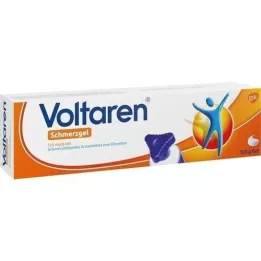
VOLTAREN Pain gel M. Blue Comfort Trehl., 150 g
VOLTAREN Schmerzgel m.blauem Komfort-Drehverschl.
$14.76 $25.99





